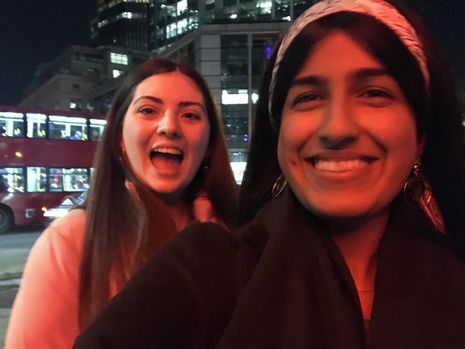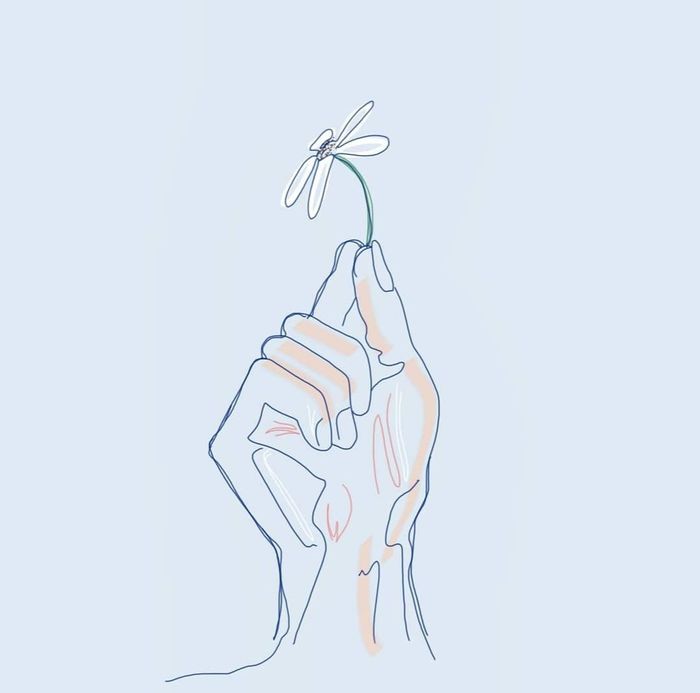Navigating socially distanced friendships with Louise Labé
Mahvish Malik connects Louise Labé’s poetry to the changes in her relationships during lockdown

I must admit, I didn’t expect a late night deep-dive into the Oxford University Bibliographies section on early modern poetry to encourage some contemplation of how my relationships have altered since last March. However, in a year that has shown us that anything can happen, perhaps some self-reflection brought about by an essay crisis is well within the realms of possibility.
Said deep-dive brought me to the writings of Louise Labé, a 16th-century poet who wrote twenty-four sonnets, the majority of which longed for an absent lover. She reaches for her addressee, who remains nameless, across a gulf of physical and spiritual distance, and whilst Labé yearns for them across these sonnets, the chasm between them is never fully reconciled. It is only in the hypothetical poetic space she creates, through imagining her lover in her dreams and memories, that she is able to have some form of connection with them. In times of COVID, where we have been separated by social distancing measures, tiers and lockdowns, my own memories of past times with friends and future hopes for reuniting with them reside in these same imagined spheres.
“It’s hard to not feel as though the pandemic has gently eroded the comforting framework of friends that has supported me so well in the past”
The last day of Year 13 sits in my mind as a reference point of more precedented times. Whilst the daunting unknown of how the pandemic would pan out lingered in the backs of our minds, it did not overshadow what I fondly recall as the last memory of being happy with the friends I had grown up with: a time without the imposed distance, first demanded by social distancing measures, and then by the multiple national lockdowns. Reading about Labé’s conception of the self as primarily affirmed and fulfilled by being in the physical presence of loved ones brought to mind how much I cherished, and needed, the same. I recalled how at the start of the pandemic, my friends and I were able to fall back on a five-year-old tradition we had started together in a Year 9 chemistry lesson – whacking on a playlist of Just Dance videos on Youtube and following along, even if we had to push through the pain of the Rasputin dance. That particular memory, for me, captured both the comfort of routine and tradition and, importantly, just how much I enjoyed and valued the time I was able to spend with the people who mean the most to me.
The sudden disruption of this warm, communal presence that had played such a key role in colouring my school days with vivid joy and happiness has been jarring, to say the least. The ongoing restrictions inhibiting interpersonal interactions from occurring have made the prospect of reuniting feel more and more like a distant product of wishful thinking.
A few weeks ago, I saw that a close friend of mine had tried to Facetime me but, thanks to a very skewed sleeping schedule, I wasn’t awake. I finally picked up, and she asked if I wanted to go to the park and enjoy the sunny weather, having forgotten that I had left London weeks before to come back to university. It was this moment that solidified the atypicality of this year. Had this been any other time, I could have easily booked a train ride home for the weekend to see her, the physical distance between Cambridge and London easily reconciled with a two-hour journey.
Labé’s willingness to accept the illusion of reunion with her loved one that is presented to her through her dreams in Sonnet Nine resonated with how, rather than being able to take that quick trip back home to see my friend, I’ve had to settle for the pseudo-physical connection available to us via technology. Instead of being able to stroll through our old stomping grounds and bask in the sun, we’ve had to opt for impromptu Facetimes, and save our adventures for a time when we don’t have to scroll through reams of government guidance to determine whether or not we can see each other.
“Reading Labé’s poetry has helped give form and understanding to the immaterial existence it feels like we’ve lived”
It’s hard to not feel as though the pandemic has gently eroded the comforting framework of friends that has supported me so well in the past. Going from seeing my best friend practically every day, yelling the wrong answers in biology with full conviction or chatting the lesson away in English, to only having seen her twice in the past six months has been a strange adjustment. Calls every so often and the odd life update sent via Snapchat has kept us somewhat connected, but it’s undeniable that current circumstances have us feeling the most out-of-loop we’ve ever felt. It’s shown me that the best enjoyment of each other’s company really does come from in-person interactions, and we can only look to the future with hope that we’ll be exchanging stories over coffee at Caffé Nero soon. I’m sure when I next see her, even if lots has changed, our ability to do basic maths will not have improved in the slightest.
Navigating this year mentally and emotionally has been a tricky one, but reading Labé’s poetry has helped give form and understanding to the immaterial existence it feels like we’ve lived. The way her ideas of perfect union are rooted in hypothetical spaces reflects how, in the distance forced by the pandemic, we have had to do the same. With regular reminiscing of the COVID-free past through nostalgia-tinted glasses, and careful hopes for a COVID-free future, I can’t help but look forward to feeling rooted in the present again. A gift voucher for a celebratory Pho from my college wife’s mum (real-life mum, that is) waits patiently in my desk drawer, and I can’t wait to be sat in their bustling Soho branch, revelling in good company, surrounded by others doing the very same.
 News / Colleges charge different rents for the same Castle Street accommodation2 March 2026
News / Colleges charge different rents for the same Castle Street accommodation2 March 2026 News / News in Brief: waterworks, wine woes, and workplace wins 1 March 2026
News / News in Brief: waterworks, wine woes, and workplace wins 1 March 2026 News / Climate activists protest for ‘ethical careers policy’1 March 2026
News / Climate activists protest for ‘ethical careers policy’1 March 2026 News / Angela Merkel among Cambridge honorary degree nominees27 February 2026
News / Angela Merkel among Cambridge honorary degree nominees27 February 2026 News / Private school teacher who lied about Cambridge degree barred from teaching27 February 2026
News / Private school teacher who lied about Cambridge degree barred from teaching27 February 2026









